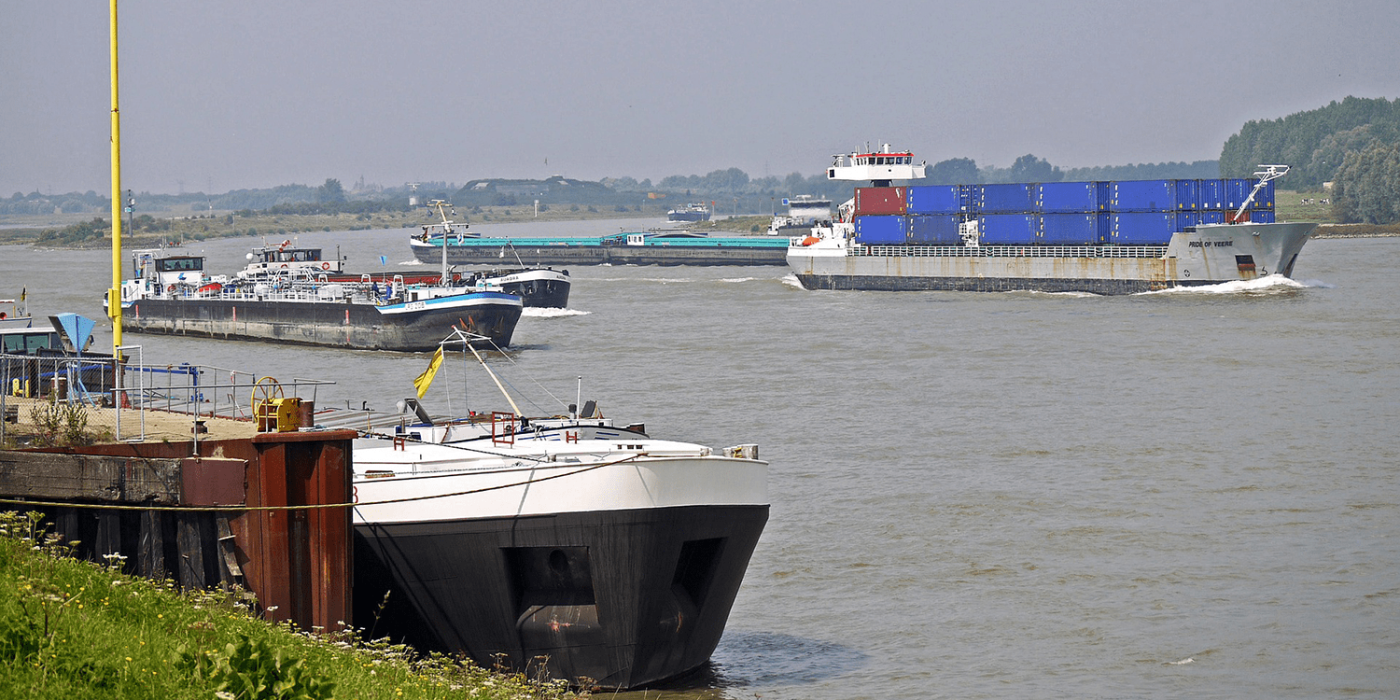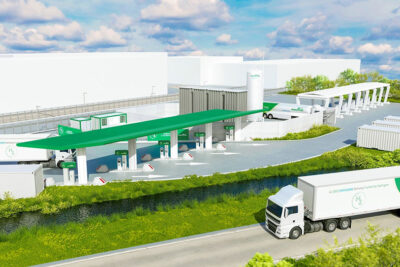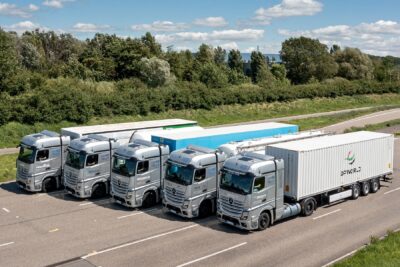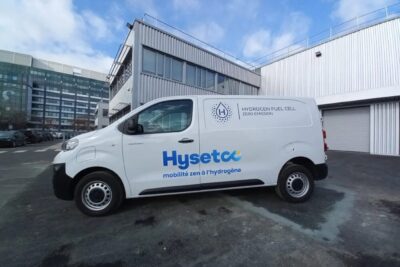Hydrogen transport route along Rhine-Alps corridor
Seventeen partners want to turn the so-called Rhine-Alps corridor stretching from Rotterdam to Genoa into a purely hydrogen-based transport route – by water, road and rail. The RH₂INE project stands for ‘Rhine Hydrogen Integration Network of Excellence’.
++ Kindly find updates below. ++
Freight on the transport line between the Netherlands, Germany, Switzerland and final destination Italy is currently almost exclusively based on fossil fuels. The international project, particularly supported by the province of Zuid-Holland, the Dutch Ministry of Infrastructure and Hydraulic Engineering and the German state of North Rhine-Westphalia, aims to “establish the first zero-emission route” filled by hydrogen. To this end, the multi-member consortium has now signed a letter of intent in the Dutch town of Arnhem.
Initially, the partners, including the Port of Rotterdam, want to focus on the waterways. To this end, the first step is to build hydrogen production facilities along the river Rhine between Rotterdam and Cologne. By 2024, the first 10 to 15 inland tankers powered by hydrogen could then start their journey. By then, the consortium aims to have 1,950 tonnes of hydrogen available. By 2030, the fleet of fuel cell vessels is to grow to 50 to 100 units.
The project also involves the Dutch province of Gelderland, the Port of Duisburg, RhineCargo, BCTN, EICB, Nouryon, Covestro, Air Products, Future Proof Shipping, HTS Group, NPRC, Air Liquide and Koedood. The consortium also wishes for other partners to come onboard and RH₂INE is to be understood as an open platform. The project follows in the spirit of the EU Green Deal that calls, among other things for creating synergies between the new clean energy networks and transport corridors.
Update 19 July 2020: The transport corridor between Rotterdam and Genoa for hydrogen-powered vessels is making progress. The EU Commission has granted the RH2INE consortium a grant of 500,000 euros for further research into the project. The application was jointly submitted by the Dutch province of Zuid-Holland, the German federal state of North Rhine-Westphalia and the ports of Rotterdam, Duisburg and RheinCargo. These partners will, in turn, match the half-million euros in the budget.
The European grant will be used to fund specific research into which hydrogen refuelling stations best suit the purpose, which hydrogen technology to use and also look into legislation required in the countries and regions to allow inland vessels to switch to hydrogen.





1 Comment